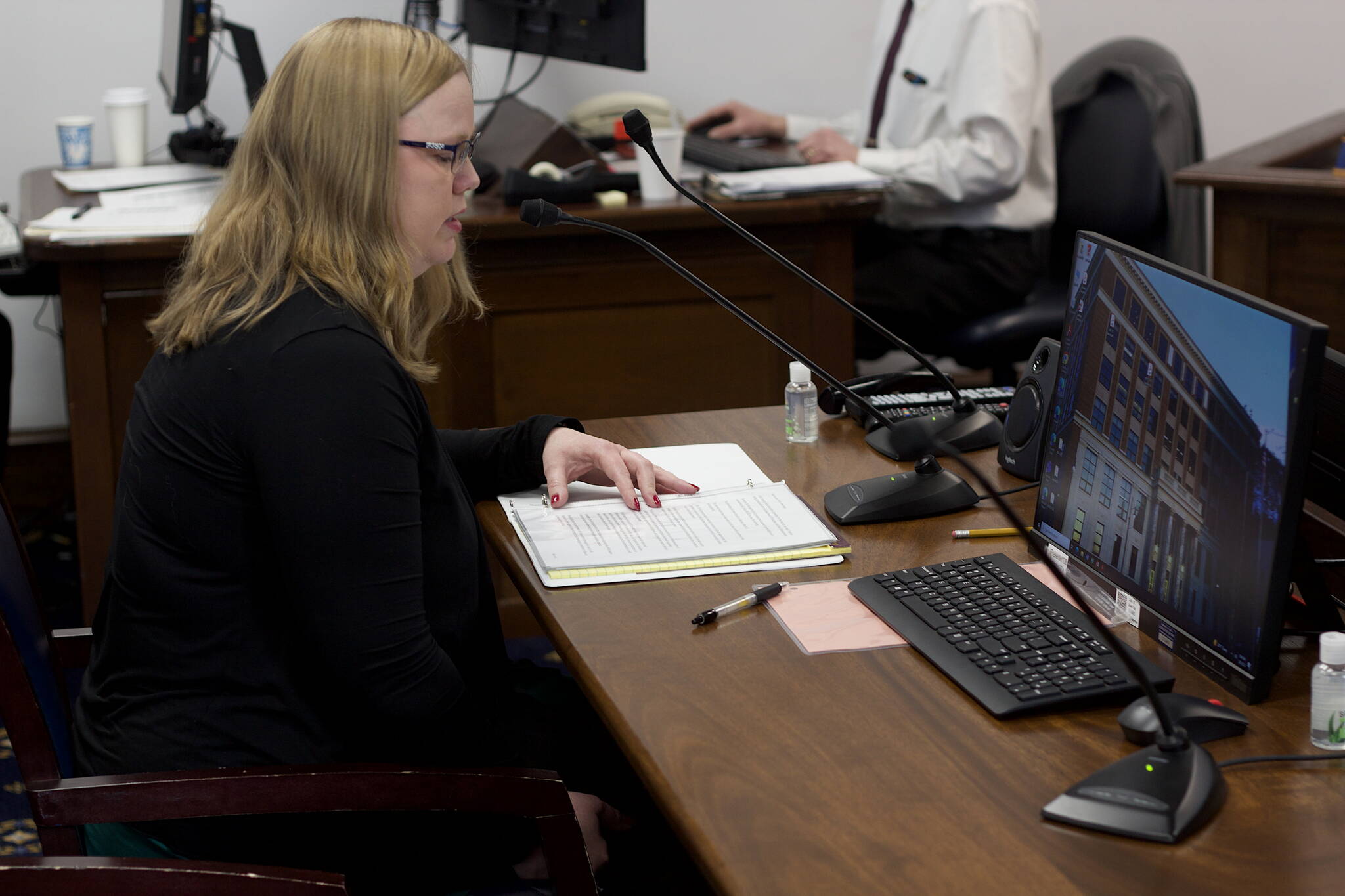The public will get its first chance Thursday evening to testify on Gov. Mike Dunleavy’s proposal to largely ban content related to sex and gender in public schools — and legislators said during a hearing Wednesday say they expect the meeting to be long and contentious.
“I would like to request that the sign-in sheet for that session be placed out on the table at least an hour before the hearing begins so people who arrive early can sign in,” said state Rep. Tom McKay, an Anchorage Republican who is a member of the House Education Committee, which is scheduled to take testimony on the proposal beginning at 5:15 p.m.
The meeting is officially scheduled to last two hours, but the intent is to allow public testimony to continue beyond that if there are people who signed up remaining, said Jamie Allard, an Eagle River Republican who is the committee’s co-chair.
Dunleavy’s so-called “parental rights” bill (House Bill 105) prohibits sex and gender discussions before the fourth grade, requires parental permission for such discussions for other grades, requires written parental permission for a child to be addressed by a different name or pronoun, and requires students to use locker rooms and restrooms according to their biological sex. Legislation with largely similar provisions was signed into law in Florida last year and is being proposed by conservative lawmakers in numerous other states.
While Thursday’s hearing involves issues that have set off a cultural war firestorm nationally, the evening may end up being a heated debate about a proposal with almost no chance of passing the Legislature — and being declared unconstitutional if it does.
Leadership with the bipartisan Senate majority, representing 17 of the 20 members, have said Dunleavy’s bill will likely get a public hearing as a courtesy, but there is little interest in passing the legislation. Also, a sign its fate is less-than-certain in the House came Wednesday when the House Finance Committee nixed funding for a state attorney who would assist in “parental rights” disputes with school districts, with two members of the Republican-led majority joining the four minority members in a 6-5 vote.
Furthermore, a legal analysis by the nonpartisan Legislative Affairs Agency stated in a memo last week “the draft bill will likely raise challenges under the Alaska Constitution’s Privacy Clause.”
Among the reasons cited is “prohibiting a gender non-conforming or transgender student from using the restroom of their choice, potentially requiring the student to abruptly begin using a different restroom, may publicly reveal the person’s status as a transgender or gender non-conforming student.” That could expose the student to harassment or harm and therefore “it is likely that a court would conclude that a transgender or gender non-conforming student has a fundamental privacy interest.”
A spokesperson for Dunleavy stated in an email to the Anchorage Daily News that schools can offer single occupancy facilities to avoid violating the rights of transgender students.
Similar issues exist for other portions of the bill, some of which have not yet been tested in court, according to the memo.
The second hearing on HB 105 by the House Education Committee occurred Wednesday and, as with the first bill, testimony was limited to Dunleavy education officials and invited supporters of the bill. Thursday’s hearing is the first open to all members of the public, although they may not get equal treatment when seeking to comment.
McKay said he believes priority should be given to people testifying in person, referring to a hearing last week about a bill boosting public education funding where many people were unable to comment due to time constraints. At that meeting the dominant portion of people in the room were part of a visiting conservative policy group who opposed an increase and voiced numerous complaints about public schools, while most of the online testimony was from educators and others who supported the increase.
• Contact Mark Sabbatini at mark.sabbatini@juneauempire.com

